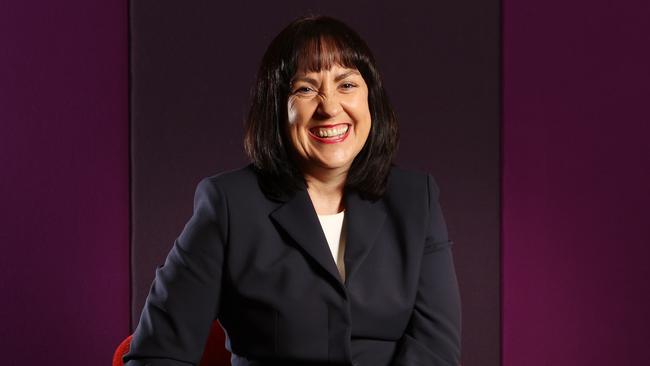Christine Corbett tapped to lead Incitec Pivot fertiliser spin-off
The former AGL executive was in line to run the energy giant’s demerged retailing business before those plans were halted amid a shareholder revolt led by Mike Cannon-Brookes.

Incitec Pivot says former AGL Energy executive Christine Corbett will run the company’s proposed fertilisers spin-off if the separation goes ahead as planned.
Ms Corbett was to be the chief executive of AGL Australia, the retail arm of the energy giant which had itself proposed to separate its power generation assets, but that plan did not proceed after a shareholder revolt led by Atlassian billionaire Mike Cannon-Brookes.
In May, Incitec Pivot announced its intention to separate the company into Incitec Pivot Fertilisers and explosives business Dyno Nobel, with both to be listed on the ASX.
That decision came after a strategic review of the fertiliser business in 2019.
Ms Corbett will join the fertiliser business on January 9 and lead it through the proposed separation, Incitec Pivot told investors on Wednesday.
Ms Corbett was previously the chief customer officer at AGL and an executive at Australia Post, including a period as the organisation’s interim managing director.
“Christine’s industry and executive leadership across energy, logistics and supply chains
demonstrates her ability to transition across large and complex businesses and adapt to new
industries and be successful in delivering commercial results,” said Incitec Pivot chairman Brian Kruger. “Christine’s previous role will bring contemporary experience in energy transition, decarbonisation and sustainability.”
The company has already appointed Michael Carroll as the Incitec Pivot Fertilisers chairman.
“She has a clear track record in the development of technology, digital and
customer solutions to accelerate future profitable growth. Importantly, these are key drivers to
capture the significant potential in the agricultural sector,” said Mr Carroll.
Ms Corbett will have a fixed salary of $1.05m, with short-term incentives of up to 120 per cent of that figure and long-term incentives of up to 100 per cent in addition.
If the demerger doesn’t proceed, Ms Corbett will be entitled to a $500,000 payment.
In its latest update, Incitec Pivot said fertiliser volumes had dropped due on lower demand while gas supply snags at its Queensland Phosphate Hill plant had added $45m to costs.
In September, the company guided Australian fertiliser distribution earnings before interest and tax to come in at between $40m and $45m for the 2022 financial year, up to $25m lower than the $65m consensus figure of analysts.
Incitec had considered spinning out its fertiliser division in 2019, when the drought on the east coast of Australia was crunching farming communities. It announced its decision to retain the business in April 2020, as uncertainty around the emerging Covid-19 pandemic battered markets and threw a shadow over global economic growth.
Incitec Pivot undertook a transformational acquisition in 2008 to forge deeply into the market when it purchased Dyno Nobel for $3.3bn and it is the second largest provider of explosives products and services in the world.
Its fertiliser unit comprises the distribution and manufacture of fertilisers.
It has an Australian Bio Fertilisers unit, along with its most valuable asset Phosphate Hill, the Gibson Island plant, operations at Geelong and an extensive distribution network.
Dyno Nobel is expected to retain all bank facilities and bonds outstanding at separation and anticipates the continuation of an investment-grade credit rating.
One-off costs are expected to be between $80m to $105m and ongoing costs are expected to be about $25m to $35m.
Incitec Pivot shares rose 1.7 per cent, or 60c, to $3.66 in morning trade.



